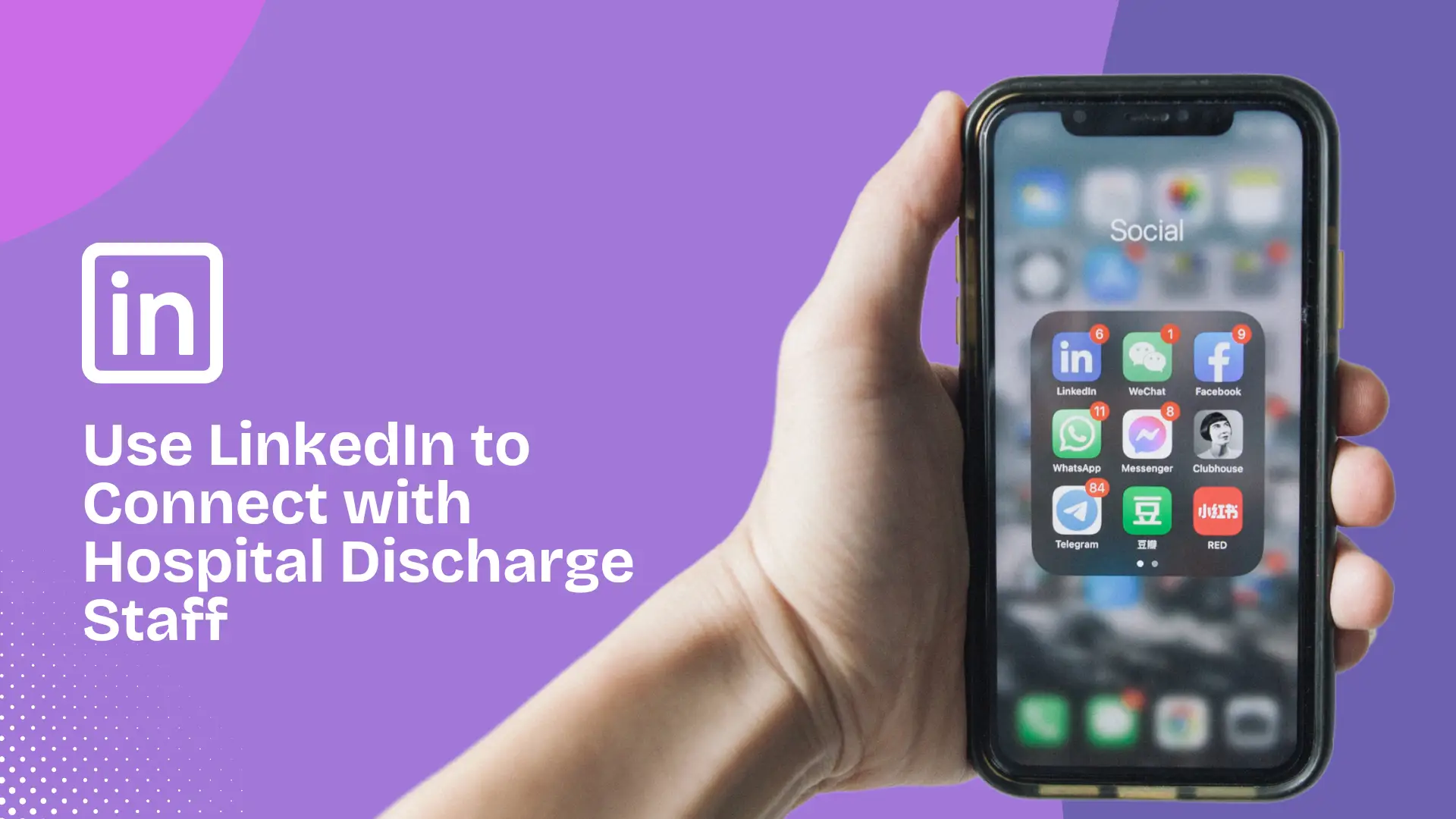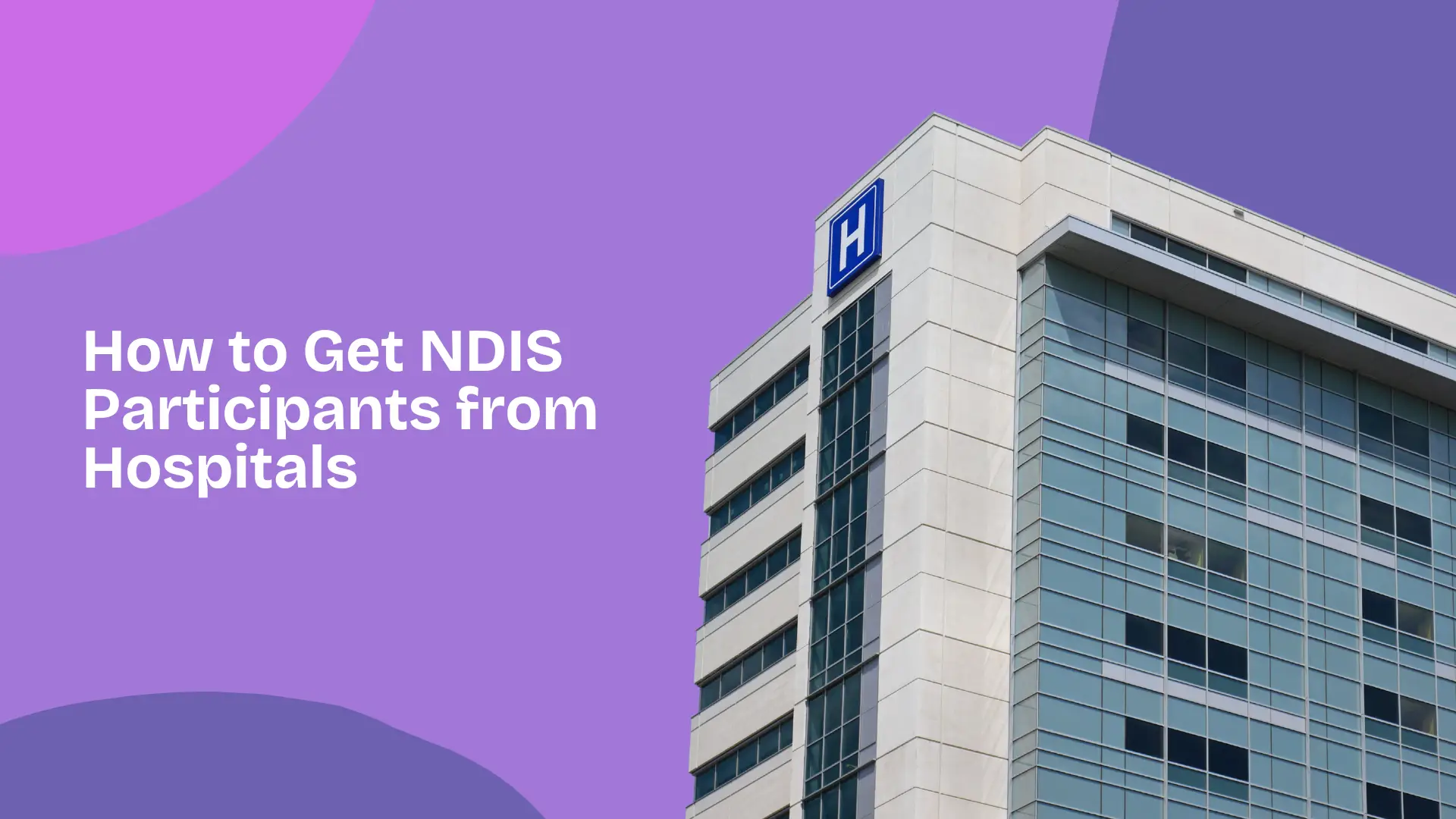Supporting NDIS participants transitioning from hospital back into the community is one of the most powerful ways to grow your service. Hospitals discharge thousands of participants every year—many of whom need reliable providers for personal care, therapy, or home and living support. But referrals don’t happen by accident. They go to providers who show up, build trust, and prove they’re ready to help.
Understanding the Hospital Discharge Process for NDIS Participants
To attract hospital referrals, you must first understand how the NDIS hospital discharge process actually works. The NDIA Hospital Discharge Operational Plan outlines how existing or prospective participants are supported through the discharge journey with health and disability systems working together.
Here’s a simplified overview of how it unfolds:
- Participant Identified: Hospital staff confirm if the person is an existing participant or eligible for the NDIS.
- NDIA Notified: With consent, the hospital notifies NDIA and helps lodge access requests.
- Initial Contact: NDIA contacts both the participant and hospital within 4 days.
- Information Shared: Hospital provides relevant health details for planning.
- Planning Meeting & Assessment: NDIA coordinates planning meetings and home/living assessments if needed.
- Plan Approved: Support plans are finalised and implemented—including RFS (Request for Service).
- Support Coordination: Support coordinators engage with key people, organise services, and manage the transition.
- Final Discharge: Participant exits hospital with the plan in place, supported housing arranged, and services active.
Understanding this structure helps you align your service with the hospital’s process—making you easier to work with and more likely to be recommended.
Related: How to Get NDIS Clients: A Comprehensive Guide for Providers
Getting NDIS Participants from Hospitals

Getting NDIS participants from hospitals starts with trust, visibility, and readiness. When you align your intake process with hospital expectations, offer reliable discharge support, and make it easy for staff to find and contact you, referrals follow naturally.
Here are 7 ways to become a hospital’s go-to referral choice when discharging NDIS participants into the community.
1. Build a Strong Online Presence
Hospital discharge teams frequently search online to find suitable providers. If they can’t find you—or if your website lacks clarity—they’ll refer to someone else.
What a strong online presence includes:
- Search-optimised website targeting your location and services.
- Dedicated NDIS service pages for key supports like personal care, community access, or SIL.
- Mobile-friendly design that loads quickly and looks professional.
- Clear contact options, including referral forms and intake lines.
- Up-to-date testimonials from participants and health professionals.
Your website is your first impression. Make it count.
Pro tip: Use Google Ads and SEO to show up for keywords like “NDIS provider near me” or “hospital discharge support NDIS.”
2. Build Genuine Relationships with Hospital Staff

Hospital social workers, discharge planners, and allied health teams are the gatekeepers of participant referrals. Building relationships with them is one of the most valuable investments you can make.
Strategies that work:
- Visit local hospitals regularly and introduce yourself and your services.
- Send brochures or digital PDFs that explain your intake process and supports.
- Offer in-services or info sessions about navigating the NDIS.
- Provide your direct contact details so they can reach you quickly.
- Follow up professionally after receiving a referral or meeting a team member.
When hospital staff know who you are and trust that you’ll follow through, you’ll earn their referrals.
3. Offer Tailored Hospital-to-Home Transition Services
Stand out by offering a clear and professional hospital-to-home program. Discharge teams prefer referring to providers who can help from day one, not just when funding kicks in.
What to include in your transition support package:
- Pre-discharge consultations and home visits.
- Support with housing, assistive tech, and therapy coordination.
- Staff trained in post-acute care, mobility support, or pressure injury prevention.
- Fast turnaround for onboarding and risk assessments.
Position it like this: “We specialise in hospital-to-home support for NDIS participants—our goal is to make every discharge safe, smooth, and supported.”
4. Streamline Your Referral and Intake Process
No one wants to deal with complex, delayed onboarding—especially busy teams under pressure. The easier you make it to refer someone, the more often you’ll get referrals.
Make it seamless with:
- A simple online referral form (linked clearly on your website).
- Same-day follow-up when a referral is submitted.
- Clear communication of next steps and timeframes.
Simplifying your intake process builds confidence and makes you the provider of choice during time-sensitive hospital discharges.
5. Showcase Your Experience and Trustworthiness
Hospital teams don’t want to take chances with unreliable providers. They want to work with professionals who understand complex needs and deliver what they promise.
Prove your value with:
- Real case studies showing successful discharges and outcomes.
- Testimonials from allied health staff or social workers.
- Certificates, registrations, or insurance coverage clearly displayed.
- A team page showing trained and qualified staff.
- Stories of how you helped other participants settle back into the community.
Make it easy for hospital teams to see why you’re a smart referral—back it up with real results.
Related: 7 Essential Digital Marketing Strategies for NDIS Providers
6. Use LinkedIn to Connect with Hospital Discharge Staff

LinkedIn is one of the most underused tools in disability services—but it can unlock real referral opportunities. Hospital discharge staff, social workers, and care managers often use LinkedIn professionally. If you’re not on LinkedIn yet, it’s a good idea to create both a personal profile and a company page.
How to use LinkedIn to build hospital partnerships:
- Connect with local discharge planners, OTs, and social workers.
- Send genuine, helpful messages introducing yourself and your services.
- Share content about hospital-to-home support, participant outcomes, or NDIA updates.
- Join healthcare or NDIS-related groups where hospital staff are active.
- Comment on hospital or industry posts with value-added insights.
By using LinkedIn consistently, you stay top of mind when those hospital staff are ready to refer a participant.
7. Partner with a Specialist NDIS Marketing Agency

If you want to take your visibility to the next level, work with a marketing agency that understands NDIS inside and out. Agencies like AdTuna Health specialise in helping providers reach participants, support coordinators —and yes, even hospital staff.
AdTuna Health can help you:
- Rank #1 on Google for hospital-related NDIS search terms.
- Design high-converting landing pages tailored to hospitals and discharge planners.
- Run targeted campaigns on Google and LinkedIn aimed at healthcare professionals.
- Set up fast, mobile-ready intake systems that streamline onboarding.
- Create educational content that builds trust with medical decision-makers.
When you work with a team that already understands the NDIS landscape, you move faster, smarter, and with better results.
Final Thoughts: Be the Provider Hospitals Trust
Securing NDIS participants from hospitals isn’t about luck—it’s about strategy. Hospitals refer to providers they trust to deliver fast, reliable, participant-centred care. That trust starts with visibility, grows through connection, and solidifies through real results.
To recap, here’s how to position your business for consistent hospital referrals:
- Understand how hospital discharges work.
- Be visible when they search online.
- Build relationships that go beyond brochures.
- Offer real transition support, not generic care.
- Make referrals and onboarding frictionless.
- Use LinkedIn to stay visible and professional.
- Get expert help from a marketing agency that speaks NDIS fluently.
The opportunity is there. Hospitals are discharging participants every single day. With the right approach, your organisation can become the trusted name that hospital staff recommend again and again.

